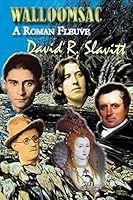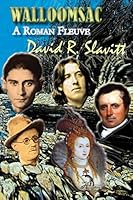Description
If a novel is a work of prose of some length, this is a novel--but different in that it is more like life, which has no plots and does not reward virtue or punish vice, and in which characters appear and then, if the author doesn't kill them off, remain to the end. Life is messier than Tolstoy and Henry James were willing to admit. Here, in David R. Slavitt's farrago, one thing leads to another but without discernible direction until, at the end, there is a kind of resolution, a vision, however unreliable and approximate, of what the life of the speaker has been. It is a deeply thoughtful book but also laugh-out-loud funny. Like life, if we're lucky. “David Slavitt has (herein) written a book about or for which it is impossible simply to write a blurb -- a word, it might interest you to know, coined in 1907 by Gelett Burgess. (Did you think of a purple cow, just then?) The text itself is indescribably (deliciously?) itself. Like the Waloomsac River, it just keeps rolling along, taking the reader irresponsibly with it -- laughing out loud again and again and again; marveling at its rapid wit (white water?), the wide breadths of its erudition, the dangerous shallows of its overt and covert cheekiness; marking the vertiginous depths of its, yes, wisdom. To make a long blurb short, I haven't had this kind of significant fun since I stayed up ‘til dawn one night in 1962 breathlessly reading Pale Fire for the very first time.” -R. H. W. Dillard on Walloomsac: A Week on the River



 Amazon UK
Amazon UK